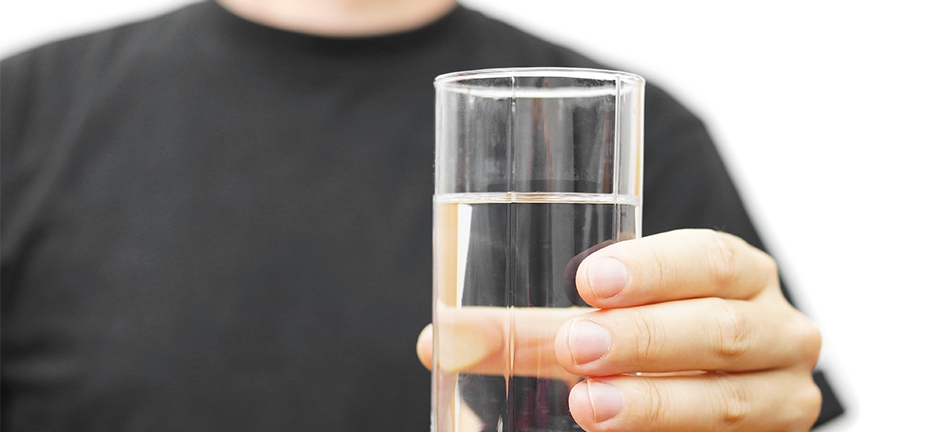We can't, much as some would like to, live off water and sunshine although we do need both to survive.
But how much exactly?
A new study has found that our bodies have inbuilt functions that carefully calibrate the amount of water we need, and that 'rules' are often wrong.
There's the rule of three, which is a pretty good guide; we can generally survive for three minutes without oxygen, three days without water and three weeks without food.
That said, people have been known to survive longer while going without - take poor Andreas Mihavecz for instance, who was accidentally left in a prison cell without food or water for 18 days.
The rule of eight however, is not a good guide, as Australian researchers have once again confirmed.
The myth that we need eight glasses of water a day was likely to have originated from a 1945 nutrition recommendation that 2.5 litres a day was a "suitable allowance". People swallowed the advice, not taking into consideration that the following sentence said much of that water was naturally contained in food. The advice - still often bandied about - also didn't account for the fact that no research has found evidence that eight glasses is the optimal amount of water.
Rather, how much water we need depends on a variety of factors including age, gender, body size, health, environment and physical activity levels (during a vigorous workout we can sweat out 1.5 litres of water in an hour).
Interestingly, as with oxygen, the body has natural mechanisms to maintain the delicate balance of hydration.
Water, after all, is essential for carrying oxygen and nutrients to the cells and flushing wastes from our bodies. Water, which makes up more than half our body and 70 per cent of our brain, also cushions our joints.
While thirst prompts us to replenish lost fluids to prevent dehydration, the new study by researchers from Monash University found for the first time that there is also a response in the body to prevent us from the equally dangerous effects of over-hydration.
Our ability to swallow becomes inhibited when we drink more than we need to be replenished.
It's a mechanism that helps to override misconceived, arbitrary rules that don't take individual variability into account.
"There have been cases when athletes in marathons were told to load up with water and died, in certain circumstances, because they slavishly followed these recommendations and drank far in excess of need," Associate Professor Michael Farrell said in a statement.
What do we do instead? Well, we can look to the colour of our wee, as the Mayo Clinic suggests.
Or we can forget the rule of eight and recognise that there's only one rule for hydration: to listen to the finely tuned instruments that our bodies are.
"If we just do what our body demands us to we'll probably get it right", Farrell said, "just drink according to thirst rather than an elaborate schedule".

